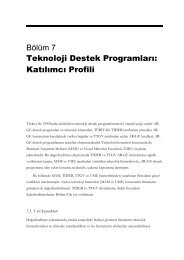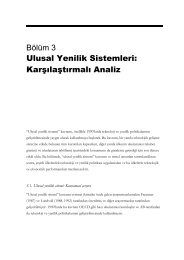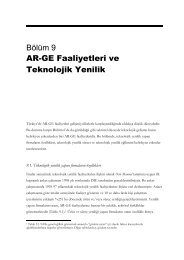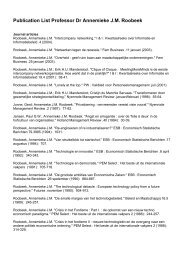The Australian Government's Innovation Report
The Australian Government's Innovation Report
The Australian Government's Innovation Report
Create successful ePaper yourself
Turn your PDF publications into a flip-book with our unique Google optimized e-Paper software.
CHAPTER 2 – Initiatives for a dynamic national innovation system<br />
Part I – Strengthening our ability to generate ideas and undertake research<br />
<strong>The</strong> generation of knowledge through research is a key component of Australia’s national innovation system.<br />
It is a major contributor to innovation, offering the potential of both immediate returns through its use to<br />
improve products and processes, as well as longer term benefits through its capacity to inform future<br />
strategies.<br />
<strong>The</strong> <strong>Australian</strong> Government’s support for research and development (R&D) is significant, representing more<br />
than one third of total R&D investment in Australia. This support is directed at a number of areas spanning<br />
both the public and private sectors (see Chapter 1). It plays an active and ongoing role in: building the capacity<br />
of publicly funded research agencies and universities to deliver research outcomes consistent with their<br />
missions and national priority goals; providing incentives for industry investment in R&D; supporting access<br />
to major research infrastructure; and promoting the internationalisation of R&D.<br />
Funding under the Backing Australia’s Ability initiative is a key feature of the <strong>Australian</strong> Government’s support<br />
for R&D and demonstrates its strong commitment to keeping Australia at the forefront of knowledge. This<br />
section identifies some key indicators of Australia’s performance against this goal, and highlights relevant<br />
activities of <strong>Australian</strong> Government departments and agencies over 2005-06.<br />
Performance highlights<br />
• Australia accounted for approximately 1.3% of total world R&D expenditure, ranking 14 th in the world<br />
in 2004 (latest figures available).<br />
• Australia’s gross domestic expenditure on research and development (GERD) was at an all-time high<br />
of approximately $15.8 billion in 2004-05, an increase of 19.4% at current prices over 2002-03.<br />
• Australia’s R&D intensity, measured by GERD as a share of GDP, rose to a record level of approximately<br />
1.77% in 2004-05, up from 1.69% in 2002-03.<br />
• In 2004-05, Australia’s R&D expenditure in the public sector (government research agencies and<br />
universities combined) stood at $6.8 billion in 2004-05, an increase of 15.6% at current prices over<br />
2002-03. This included $4.3 billion performed in universities (up 24.9% over 2002-03) and $2.6 billion<br />
in government research agencies (up 2.8% over 2002-03).<br />
• Australia’s business R&D expenditure reached $8.4 billion in 2004-05, which is the highest level<br />
recorded and the sixth successive year of increase. Over the five years to 2004-05, Australia’s business<br />
R&D expenditure grew at a real rate of 11.5% a year.<br />
• Barry Marshall and Robin Warren won the 2005 Nobel Prize in Physiology or Medicine for their work<br />
identifying the bacterium Helicobacter pylori and its role in gastritis and peptic ulcers.<br />
• During the five-year period to 2005, Australia accounted for nearly 3% of the total world scientific<br />
publications, producing 1141 scientific publications per million population over this period.<br />
• <strong>Australian</strong> scientific publications generated citation impacts higher than the world average over the<br />
period 2001-2005, with particularly strong performance in the fields of space science, geosciences,<br />
mathematics, clinical medicine, plant and animal science, agricultural science, physics, and<br />
ecology/environment.<br />
Chapter 2 - Initiatives for a dynamic national innovation system 21


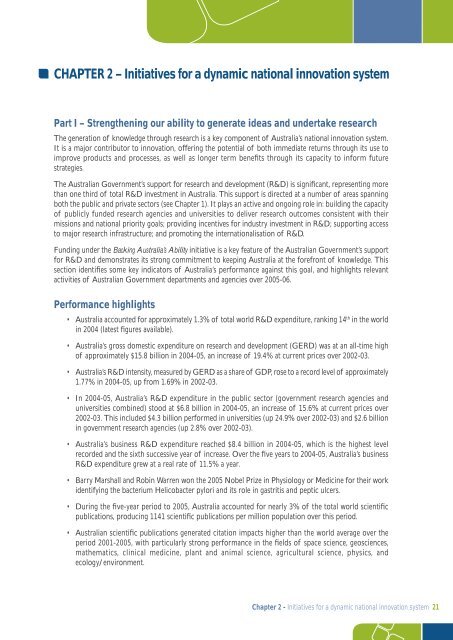

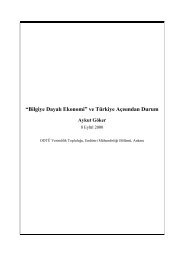
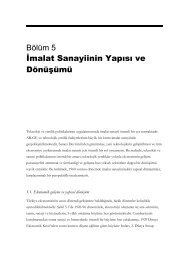
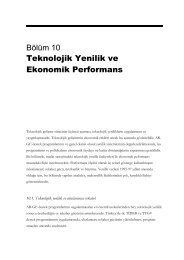

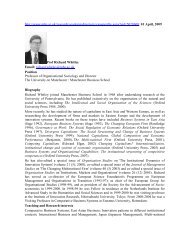

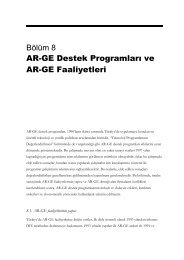
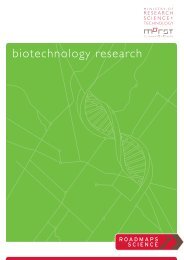
![[Tam] Uygula[ya] - Bilim, Teknoloji ve Ä°novasyon Politikaları TartıÅma ...](https://img.yumpu.com/36820041/1/184x260/tam-uygulaya-bilim-teknoloji-ve-anovasyon-politikalara-tartaama-.jpg?quality=85)
